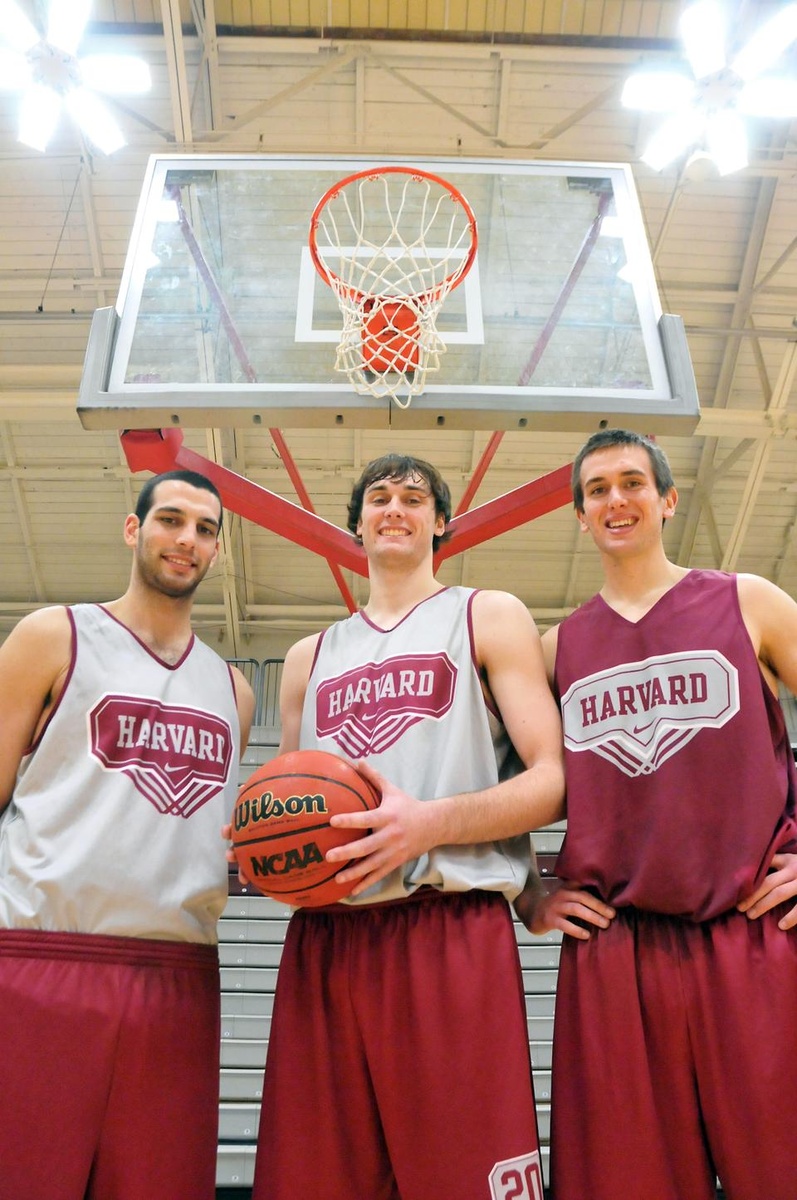The ideal 2009-10 season for Harvard men’s basketball would involve continued progress towards the team’s the ultimate goal of wearing the Ivy crown.
But for three particular Crimson players, it’s about something else, too. It’s about the comeback.
Although much of the hype heading into this season has been focused on co-captain Jeremy Lin and the team’s freshmen, the Crimson would be remiss to overlook a different core of performers making a return to the court. Three Harvard big men coming off injuries—a sophomore and two seniors—may very well steal some of the attention from their more heralded teammates if they meet their personal expectations.
“What we do isn’t always recognized in the stat book—boxing out or setting picks—but everything we do is important for the team,” senior Pat Magnarelli says.
The return of Magnarelli, sophomore Andrew Van Nest, and co-captain Doug Miller represents a radical shift from last year’s roster, which by necessity relied on rookies and emphasized speed over size. This year, the Crimson can look to the trio to bring more balance and experience to the floor.
“It’s always tough when you have a really young team like that to try to get it going on the offense and defense,” Magnarelli says. “There’s a bunch of good leadership this year.”
Magnarelli, Van Nest, and Miller have set their sights on more tangible goals as well.
“As the big men, we say that we want to be the best rebounding team in the Ivy League, both offensive and defensive,” Magnarelli says. “We were eighth in the league in rebounding last year and our goal is to be number one.”
But these returning players’ potential impact will hinge on their ability to stay on the court. Even before last season started, Van Nest and Magnarelli went down with season-ending shoulder and knee injuries, respectively. Miller lasted until the conference schedule began, but with 10 games left he succumbed to a broken metatarsal in his right foot, forcing him to sit for the remainder of the season.
This year, Miller—who is not a pure scorer—will contribute with physical and efficient post play. The 6’8 forward shot 70 percent from the field last season to go with 6.1 points and 3.6 rebounds per game. But statistics do not capture Miller’s defensive prowess or the attitude he brings to the court.
“[Toughness has] kind of been one of our weaknesses over the years,” Miller says. “[We] don’t want to be the weak link this year and...get pushed around in the Ivy League season. And our goal is to avoid that at all costs and start pushing other people around.”
Miller, who saw playing time last year in place of Magnarelli, will now get a chance to play alongside his classmate. After missing a season and a half, Magnarelli finally gets a chance to show the dominance he flashed in the beginning of his sophomore year. In 2007-08, the forward boasted a shooting percentage of .580 and averaged 10.8 points and 6.3 rebounds per game before a knee injury ended his campaign prematurely.
Last season, his return generated much excitement—excitement which turned to disappointment just days before the start of the season, when Magnarelli was sidelined with another knee injury. After receiving a tendon implant to stabilize the joint this offseason, the 6’7” senior is ready to hit the court once again.
Van Nest represents another boost to a front line that will provide crucial size and strength during Harvard’s run at the Ancient Eight title. Last year, Van Nest entered the Ivy basketball scene as one of the key pieces of coach Tommy Amaker’s recruiting class. But a bad rotator cuff and subsequent surgery sidelined the talented big man, and he spent the season in dress clothes on the bench. Unlike Miller and Magnarelli, the 6’10 Van Nest lacks statistics and playing time at the college level, but his size and skill set—especially his three-point shooting ability—make him a huge asset for the Crimson.
A successful comeback for these three players will provide Harvard with healthy depth relative to the eight-man roster that closed out last season. Failure could mean another shallow bench and inexperienced team. For Miller, Magnarelli, and Van Nest, establishing a dominant post game for Harvard will involve much more than simply staying healthy, but the ultimate goal is simple.
“Win,” Van Nest says. “Rebound for our team. If they happen to miss, put it back in there for them—just whatever we can do to win.”
—Staff writer Emmett Kistler can be reached at ekistler@fas.harvard.edu.
Read more in Sports
Jeremy Lin Takes One Last Shot













